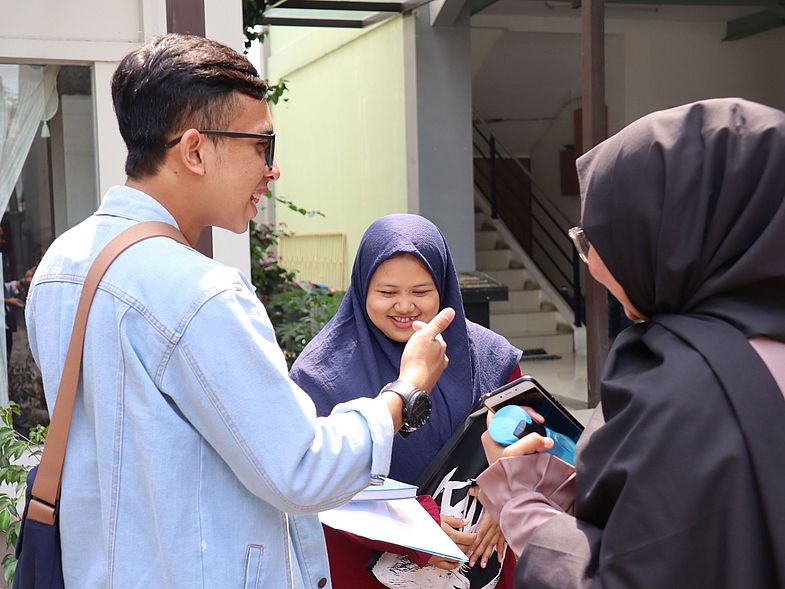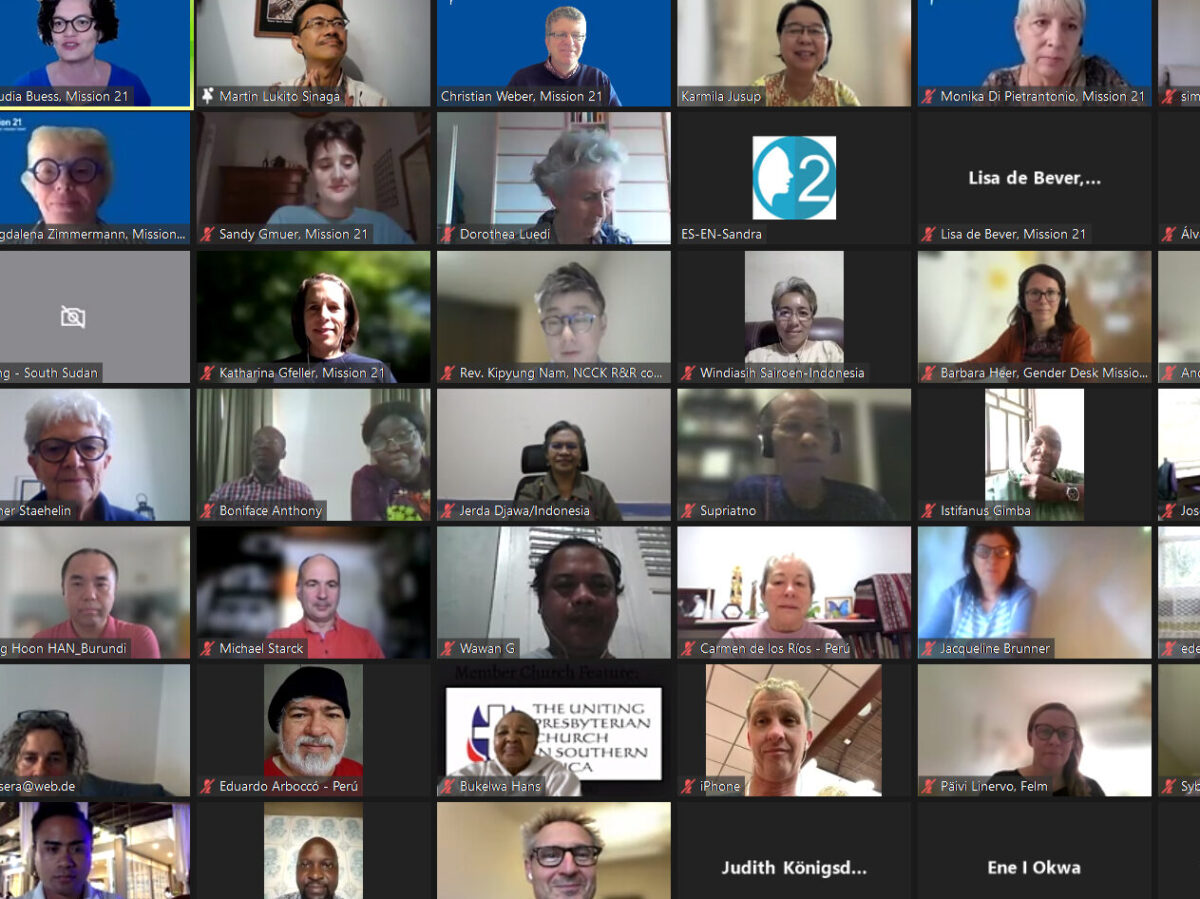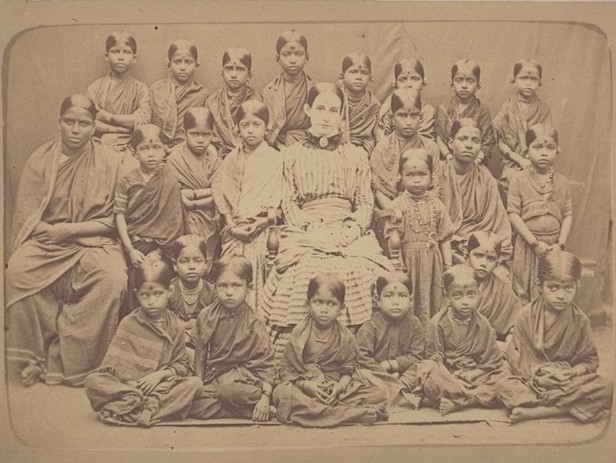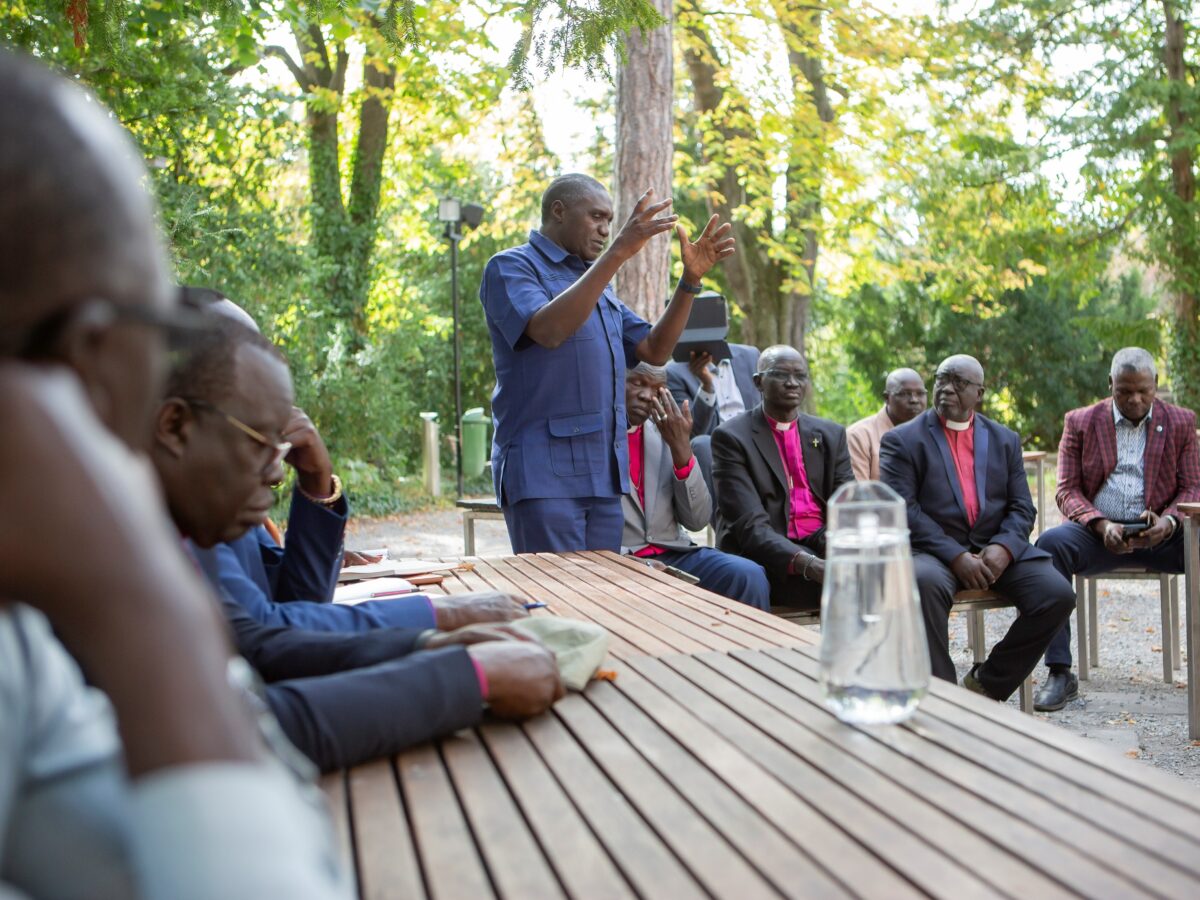The audience was as international as the group of speakers: Around 60 participants dialed in from Belgium and France, from Switzerland and Nigeria, from the United Kingdom, Cameroon, Costa Rica and Germany for the Zoom discussion, which Mission 21 held as part of the "Dialog International" event series.
Under the title "Religion and development - an unequal pair?" Elisabeth Cook, professor and rector of the Latin American Bible University, discussed UBL in Costa Rica, Bouba Mbima, Professor and Rector of the Protestant University of Central Africa PUCA in Cameroon and Jens Köhrsen, professor of religion and economics at the University of Basel.
Religion motivates and mobilizes
The focus was on the question of whether religion can contribute to the development of a country or a society, or whether it rather inhibits development. The speakers agreed that religion and development do not have to be opposites. Religion can be a resource in many areas, they said, especially in countries where it is part of almost everyone's everyday life anyway. "Religion brings people together, it motivates and mobilizes," Elizabeth Cook said. Religion can provide a network, community and credibility, the speakers agreed. Negative aspects of religion were also mentioned, for example fundamentalism.
What does "development" mean?
It quickly became clear, however, that the role of religion in development can only be illuminated if one is clear about what is meant by development. Does it mean a linear process with a clearly defined goal to be achieved globally? Or do the criteria for development have to be adapted depending on the context?
With their speeches, the speakers traced the changes in the understanding of the term "development" - from a purely economic concept of development to a more holistic idea that, in addition to economic criteria, also focuses on goals such as gender justice, peace or the idea of a "good life" (in Latin America "buen vivir"). The "Agenda 2030" of the UN stands for such a more holistic understanding of development, although again this can be controversial.
Global goals and local interpretations
Bouba Mbima from Cameroon made it clear that the global criteria for a "developed" country do not correspond to the context, especially in many countries in sub-Saharan Africa. "Development has to adapt to our context, our historical and social reality, and our forces," Mbima said. Indicators of development should be chosen on a country-specific basis. In which case, the role religion plays in the respective societies should also be taken into account.
Jens Köhrsen held: "I think we need both. Global goals, but also local interpretations. And it's important, when working out global goals, to also involve people from the global South more than has been the case so far."
The discussion ended after 90 full minutes - and could probably have gone on for a long time, as numerous questions from the audience still arrived in the chat at the end.
Text: Miriam Glass, Mission 21
The next events in the series 'Dialog International Online' are scheduled for the 28.10.2021 on the subject Interfaith Peacebuilding as well as 24.11.2021 on the subject 'Right to education for girls and women in Tanzania'. planned. Reserve the dates already now.
The event was recorded and can be re-watched starting March 19, 2021: ► To the records of past events






